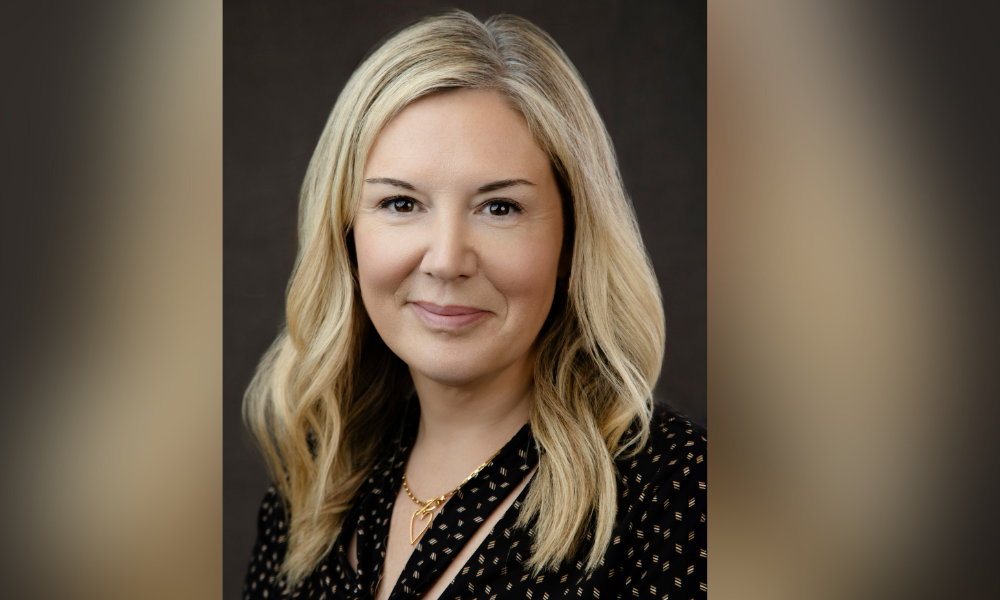As in-house legal departments take on a more strategic role in shaping the direction of Canadian business, Paula Pépin is working to redefine what it means to lead from the general counsel’s chair. A former GC turned executive coach, Pépin is the founder of The GC Collective – an organization that’s helping legal leaders across the country evolve from legal advisors to influential business partners. In this episode of CL Talk, Canadian Lawyer spoke with Pépin – named one of the Top 25 Most Influential Lawyers in Canada in 2024 – about the isolation many GCs face, the critical skills they’re missing, and how building a real peer community can change everything.
Nominations for the 2025 Top 25 Most Influential Lawyers are now open.
Below is a summary of the conversation:
Being a general counsel can be an isolating job. For Paula Pépin, that reality didn’t fully hit until she stepped away from the role. “I felt really lonely in my role, and I thought I was really the only one feeling that way,” she says. It wasn’t until she began coaching other GCs after leaving her post at Hootsuite that she recognized how widespread that experience was. “Several of them felt like didn’t have a friend to call when they had some questions… they could always call outside counsel, but it’s not the same thing.” That epiphany led to the creation of The GC Collective – an initiative that filled a gap in executive leadership by offering GCs the one thing Pépin felt they were missing: a peer community.
Pépin refers to herself as a “recovered GC,” and it’s not a throwaway line. “I crossed into the light, left that practice about four years ago and decided that my superpowers were really to help elevate others rather than practising law,” she says. It’s an unusual pivot in a sector that often sticks to tradition, but Pépin is comfortable challenging norms – especially the ones that isolate general counsel.
What began as a modest roundtable with ten people in Vancouver quickly evolved into a national peer network. “That little round table went from 10 to 15 to 20, and soon enough, there was about 30 … GCs in Vancouver that were coming together,” she says. “We realized there was this need for community within the GC community.”
But Pépin doesn’t just identify gaps – she builds structures to close them. What she uncovered through coaching was a consistent lack of training in the skills required of a business executive. “There’s a critical skill gap for us as lawyers as we grow up… in private practice, and then we’ll often move into an in-house role without really much business training,” she says. “You’re not going to write a memo to the business about the issues that you flagged… you’re going to have to be really business-minded.”
She points to strategic planning as one of the most neglected capabilities. “Our role is often reactive,” she says. “But the reality is that you can develop a strategic plan. You can be strategic in your role.” Her mantra – “slowing down to speed up” – underscores the need for GCs to step back, assess their department’s objectives, and align with the broader business strategy.
That strategic thinking is particularly vital as artificial intelligence continues to upend how legal departments function. “They are flooded with information… they’re frozen. They don’t know where to start,” Pépin says of today’s GCs. Her approach is grounded in application over abstraction. “AI is great, but it’s not going to solve everything… what I’m helping GCs do is think about use cases for AI.”
She offers examples: “Is it to make your contract review more efficient? Is it to actually write memos to your executive team? Is it to review or design playbooks or review agreements against playbooks?” Identifying relevant use cases helps her clients incorporate AI into their strategic plans without being overwhelmed.
The shift toward becoming executive leaders is not theoretical – it’s practical and constant. It touches every aspect of a GC’s responsibilities, from operations to board engagement. “Every GC today needs to be operational… that has to be part of the core skill set,” she says. “How should you be communicating with your executive team?… Are you going to be the GC in the corner just writing notes, or are you actually going to be the GC in the room that’s going to advise the board on what you’re seeing as risks?”
Legal operations in Canada, she argues, still has a long way to go. It “is nowhere near where it is in Europe and [the] US,” she says. “All the way from contract management to legal billing… these are things that are going to make their department more efficient.”
Pépin’s educational model is deliberately designed to break from the stale, passive style of most professional development. “We pride ourselves [on] not doing any boring webinar, panel-style learning online,” she says. Her workshops are capped at 20 participants and focused on practical engagement. “There’s a little bit of learning, 15–20 minutes on key concepts. But after that, we’re all working on solving issues together.”
This model is as much about community as it is about competence. And that, she says, is what makes it work. “When you’re joining a workshop with us… it’s really led in a coaching style, where they are forced to think about their own learning and what they’re going to take out of that session.”
Ambition is welcomed – not judged. “There are actually two of my coaching clients that are hoping to become CEOs,” she says. “And every time I’m one of the cheerleaders clapping.” Pépin herself transitioned from legal to business, and she sees no reason others can’t follow. “I love building a business. I love the ideas, solving complex issues when it comes to the business problems.”
Still, she’s pragmatic about who thrives in which role. “If somebody says to me, I like solving complex legal issues… then please stay in private practice. This is where you’re going to be happy,” she says. “If what energizes you is more, getting deep into business problems… it’s a different skill set and different interest.”
For external counsel, she offers a candid critique based on her past experience as a GC. “If one of the external counsel came and spent half a day with us to look at our strategic plan and proactively figure out where they could support us, we would have partnered with them way better,” she says.
The pressures on GCs are intensifying, especially in high-growth companies. “The business is saying ‘We are scaling. We are going to grow maybe 30, 40 percent next year, but we’re not going to grow the legal team. I need you GC to figure out how you can do more with less,’” she says. That squeeze, she argues, makes strategic alignment and operational maturity essential.
She categorizes GCs into two broad types: the solo GC, who is embedded in day-to-day execution, and the strategic GC, leading a larger team. For both, the shift is clear: “There’s going to be a need for GCs to be more business-minded, to be more strategic.”
That evolution is already visible. GCs under her guidance are stepping into expanded roles and earning broader trust. “They are actually being recognized as a true business contributor, because they are being considered for that CEO role,” she says. “That’s music to my ears.”
This conversation can also be found here:
The episode can also be found on our CL Talk podcast homepage, which includes links to follow CL Talk on all the major podcast providers.





